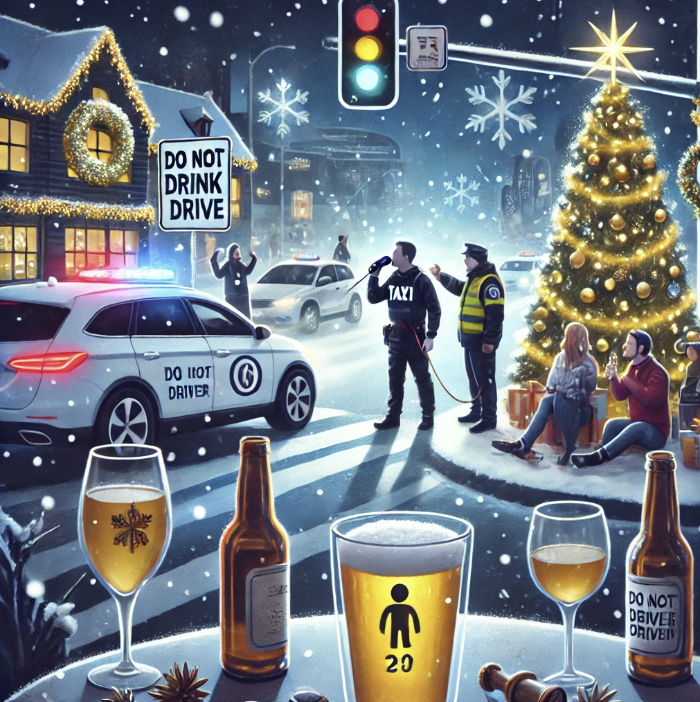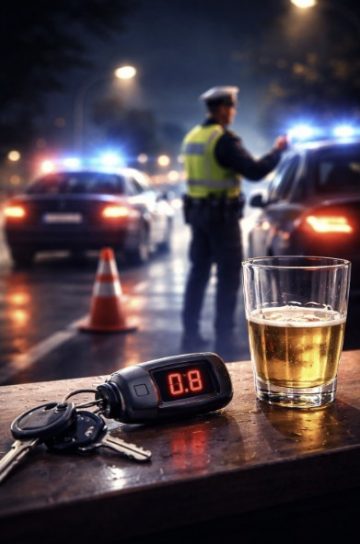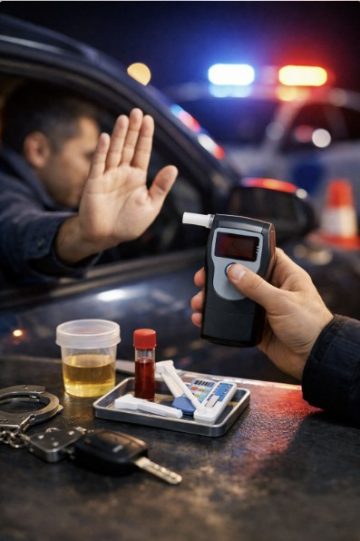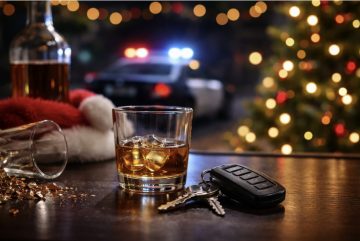Alcohol, Year-End Celebrations, and Driving Checks: A Matter of Caution and Responsibility
As a lawyer specializing in traffic law, it is important for me to remind drivers of the risks associated with alcohol consumption during the year-end festivities, as well as the rules governing drinking and driving, police checks, and the legal consequences of violations. Every year, the year-end festivities provide an opportunity for celebrations, but also a rise in risky behaviors, particularly regarding driving under the influence.
Alcohol and its Effects on Driving
Alcohol is one of the leading causes of road accidents, especially during the holiday season. Even a small amount of alcohol in the blood can impair a driver’s motor and cognitive abilities, reducing their ability to react quickly and assess risks accurately. Some of the most common effects of alcohol on driving include:
- Reduced concentration,
- Slower reaction time,
- Impaired judgment, particularly underestimating risks,
- Degraded vision, especially depth perception and speed.
These effects are even more dangerous when combined with complex driving conditions during the holidays, such as slippery or snowy roads, increased vehicle density, and frequent nighttime travel.
Legal Limits for Alcohol While Driving
In Belgium, the law sets a blood alcohol concentration limit of 0.5 g/l for experienced drivers, meaning a driver must not have more than 0.5 grams of alcohol per liter of blood. For novice drivers, the limit is reduced to 0.2 g/l. It is important to note that even one drink can be enough to exceed this legal limit, particularly for lighter drivers.
If this limit is exceeded, the driver faces criminal and administrative sanctions. Alcohol tests can be carried out randomly or following suspicious behavior. A breath test may be conducted on-site, but in some cases, more in-depth tests (blood samples or saliva tests) may be requested. Refusing to submit to a breath test constitutes a serious offense, and the penalties can be severe, ranging from fines to suspension of the driver’s license, vehicle confiscation, or even imprisonment.
Police Checks and the Duty of Caution
Police checks are particularly frequent during the holiday season. Authorities enhance road safety by conducting targeted checks, often in festive areas such as bar, restaurant, or nightclub exits. These checks can occur at any time of the day or night.
It is also essential to remind drivers of their duty to exercise caution beyond merely complying with legal limits. Even if a driver is below the legal alcohol threshold, it does not necessarily mean they are fit to drive. Alcohol can have subtle but significant effects on driving ability. Therefore, it is important to remain vigilant and responsible, even if one feels fit to drive.
Legal Consequences of Violations
Sanctions for driving under the influence can be severe and varied. Depending on the alcohol level and the circumstances of the violation, sanctions may include:
- Fines: Fines for driving under the influence generally range from 200 to 4,000 euros, and may be accompanied by additional judicial costs.
- Suspension or revocation of the driver’s license: Depending on the alcohol level and the severity of the violation, the driver’s license can be suspended for a period ranging from a few hours to several years.
- Prison sentences: In cases of high alcohol levels, accidents involving alcohol, or repeat offenses, the driver may face imprisonment.
- Increased insurance premiums: A driver convicted of driving under the influence may see their insurance premiums rise significantly or even lose coverage.
- Civil liability: In the event of an accident, even a minor one, the driver’s civil liability may be invoked, leading to compensation for the victim and repair costs.
Alternatives to Driving Under the Influence
To prevent the risks associated with driving under the influence, several alternatives are available to partygoers:
- Take a taxi or use a rideshare service: Using a taxi or a transport app like Uber prevents the temptation to drive after consuming alcohol.
- Designate a sober driver: If you are going out with others, designate a sober driver who will be responsible for safely transporting the group home.
- Opt for public transport: Whenever possible, use public transport, a simple and effective way to avoid the risks of driving.
- Moderate alcohol consumption: If you plan to drive, it is essential to limit your alcohol intake or avoid it altogether. You are responsible for your safety and the safety of other road users.
Conclusion: A Matter of Responsibility
The year-end celebrations should be a time of joy and conviviality, but they should never turn into a tragedy on the roads. As a lawyer specializing in traffic law, I believe it is essential to remind everyone that driving under the influence of alcohol is a major risk to road safety. During this festive period, each person is responsible for their own safety as well as the safety of others on the road. Caution is essential, and there are many alternatives to driving under the influence to ensure a safe journey home.
Remember: responsible driving is a civic duty that saves lives. This holiday season, more than ever, be vigilant and prioritize safety.
Feel free to contact me with any questions.




